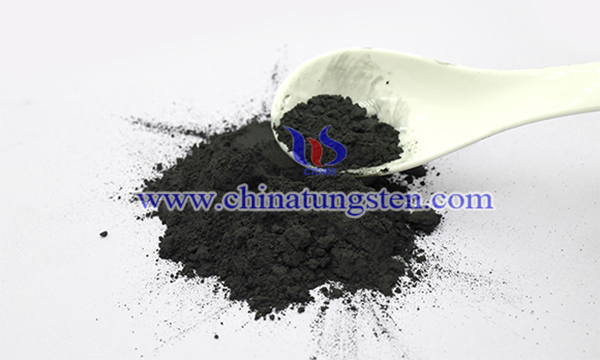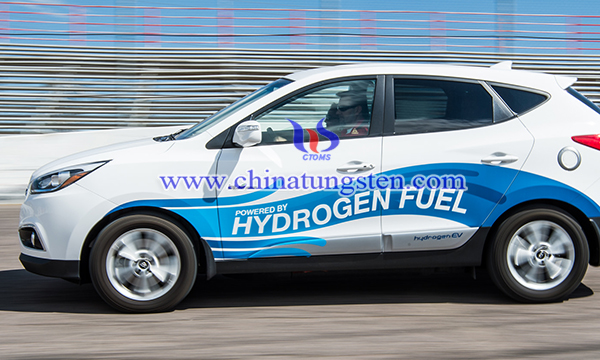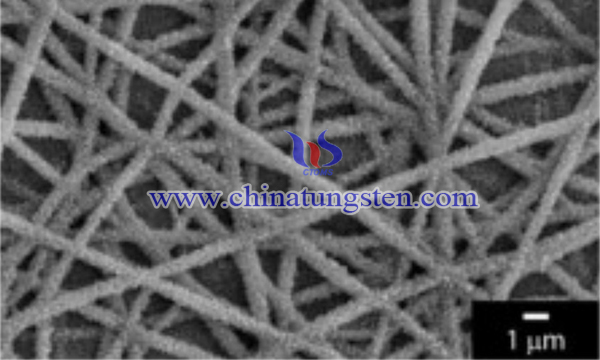Synthesis of Tungsten Trioxide Nanorods from Ammonium Metatungstate as NO2 Gas Sensors
- Details
- Category: Tungsten Information
- Published on Monday, 23 August 2021 12:22
- Written by yuntao
- Hits: 1437

Nitrogen dioxide (NO2) gas sensor at low concentration is important as NO2 is not good to human nervous system and respiratory organs. Tungsten oxide (WO3), a popular n-type semiconductor with a band-gap of 2.6–2.8 eV, has been widely studied as a promising sensing material for determining NO2 gas because it exhibits high sensitivity, low cost of manufacturing and a fast response.
Read more: Synthesis of Tungsten Trioxide Nanorods from Ammonium Metatungstate as NO2 Gas Sensors
Wet Chemical Synthesis of Tungsten/Titanium Carbide Composite by Ammonium Paratungstate
- Details
- Category: Tungsten Information
- Published on Monday, 23 August 2021 01:00
- Written by yuntao
- Hits: 1523

In the development of tungsten-based Plasma Facing Materials/Components (PFMs/PFCs), materials scientists have explored many different, innovative preparation and processing routes to meet the requirement of International Thermonuclear Experimental Reactor (ITER). Tungsten (W) is one of the best candidates for plasma-facing materials in the fusion reactors, owing to its many unique properties. However, some inherent defects such as the embrittlement, high DBTT of tungsten material restrict its application on PFMs and PFCs.
Read more: Wet Chemical Synthesis of Tungsten/Titanium Carbide Composite by Ammonium Paratungstate
Nanoscale Tungsten Phosphide Prepared by Ammonium Metatungstate: An Efficient Catalyst for Hydrogen Production
- Details
- Category: Tungsten Information
- Published on Sunday, 22 August 2021 14:11
- Written by yuntao
- Hits: 1437

Due to the environmental pollution and climate change cause by burning of fossil fuels, finding a renewable and clean energy alternative is becoming increasingly important. Hydrogen (H2) has high energy density and zero emission, which makes it one of the most promising energy carriers in future. Among various hydrogen production methods, hydrogen evolution reaction (HER) from electrocatalytic water splitting is considered as an ideal eco-friendly strategy to generate hydrogen in a large scale.
Enhanced Photoelectrochemical Performance of WO3 Film Doped with HfO2 Passivation Layer
- Details
- Category: Tungsten Information
- Published on Sunday, 22 August 2021 17:39
- Written by yuntao
- Hits: 1546

With ever-increasing demands of energy and environmental issues caused by extensive combustion of traditional fossil fuels, the quest for clean and sustainable energy sources as alternatives has attracted extensive research interest. Hydrogen seems to be a promising alternate due to its nontoxicity, ideal combustion efficiency and high gravimetric energy density. Among many accepted ways of hydrogen generation, photoelectrochemical (PEC) water splitting has been widely regarded as an appealing solution.
Read more: Enhanced Photoelectrochemical Performance of WO3 Film Doped with HfO2 Passivation Layer
Synthesis of Lanthanum Tungstate Interconnecting Nanoparticles Using Ammonium Metatungstate
- Details
- Category: Tungsten Information
- Published on Saturday, 21 August 2021 11:39
- Written by yuntao
- Hits: 1570

In the past few decades, nanostructured materials has gained more scientific interest owing to their distinctive physical and chemical properties. Lanthanum tungstate (La2(WO4)3) nanoparticles exhibits a monoclinic scheelite-like structure with a space group of C2/c. It has been widely applied in fields such as luminescence, photocatalysis and scintillators due to their unique optical and structural properties.
More Articles...
- WO3/ZnO Nanorods for Photocatalytic Degradation of Herbicides: Ammonium Paratungstate as Raw Material
- Solid-State Synthesis of Hexagonal Tungsten Trioxide via Ammonium Metatungstate
- Boron Doped-Tungsten Trioxide Films for PEC Water Splitting
- Nanosized Tungsten Trioxide Prepared Toward Gas Sensing of NO2 and Ethanol





 sales@chinatungsten.com
sales@chinatungsten.com